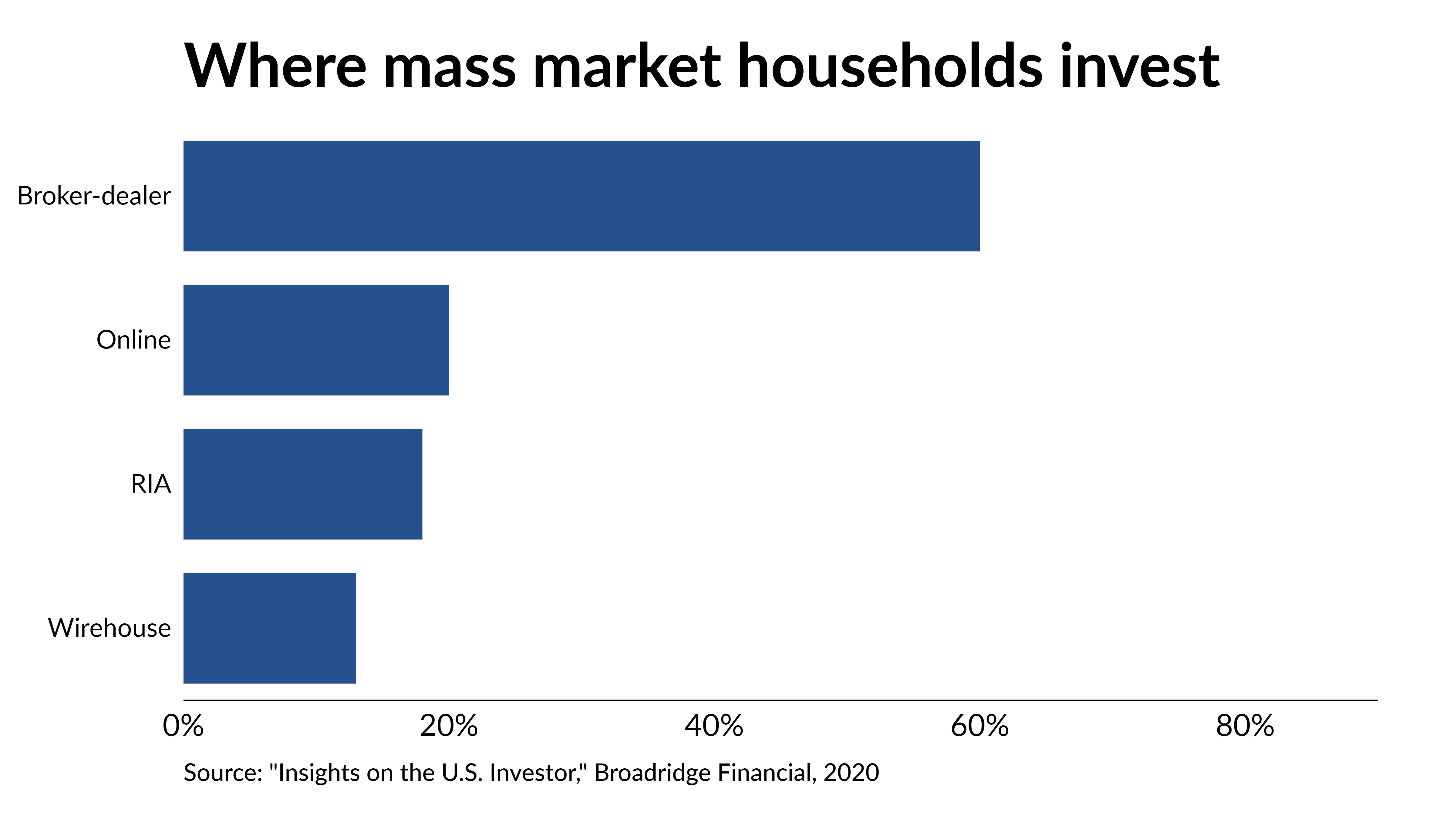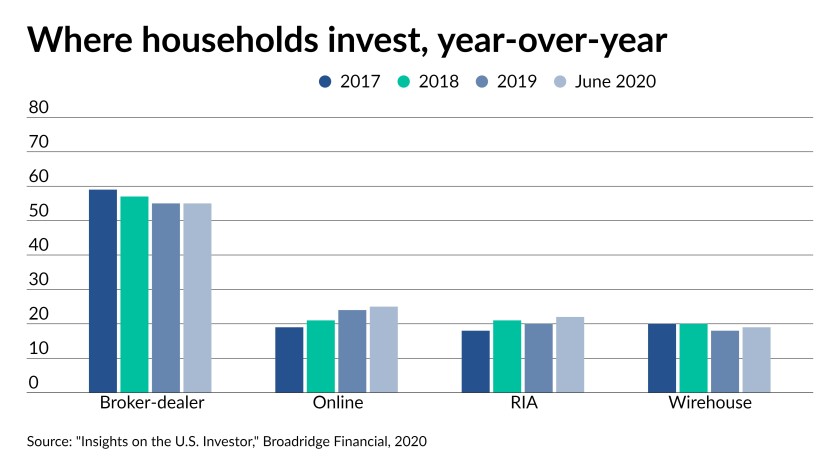
Despite the rise of online brokerages and robo-advisors, most millennials and mass market investors still rely on traditional broker-dealers to manage their assets, according to a study from Broadridge Financial Services.
An analysis of 20,000 households that invest in mutual funds, equities and ETFs (excluding workplace retirement accounts) found that 60% of households with fewer than $100,000 in investable assets are served by broker dealers. Another 18% work with an RIA and 13% use a wirehouse, leaving just 20% of the mass market population using a digital self-service platform like Vanguard, Fidelity or Charles Schwab.
Digital platforms are somewhat more popular among millennials, with 29% using online channels to manage investments, but 54% work with a broker-dealer, 18% with an RIA and 12% with a wirehouse.
The data runs counter to the popular narrative that younger investors don’t want to work with traditional financial services firms, and is also a testament to the sheer size and legacy of the broker-dealers, says Andrew Guillette, Broadridge’s vice president of America insights.
“There are three times the number of advisors in the channel, and they are out there across the nation,” Guillette says.
However, historical data shows that a gradual shift is happening. Overall adoption of the online brokerage model has increased to 25% of all investors, up from 19% in 2017. Usage of broker-dealers has dipped from 59% to 55% over the same time period.

The data aligns with anecdotal reports of surging interest in low-cost, commission-free stock trading apps. For example, Morgan Stanely said more self-directed investors opened accounts on its E-Trade platform in the first quarter of 2021 than in the third and fourth quarters of 2020 combined. And a recent J.D. Power report said of the 10 million new brokerage accounts opened in 2020, 27% belonged to Robinhood.
Part of the shift comes from the growing influence of millennials, the fastest-growing share of the investor market, Guillette says. The data could also highlight how many people use multiple channels to manage their finances, says Dan Cwenar, president of data and analytics at Broadridge. After starting with a self-directed account, investors may shift to an advised relationship but still keep some assets with an online brokerage.
But it’s not just young people who are managing their money online, Cwenar adds.
“What was surprising to us was the median age of those on online platforms,” he says. “The online channel is the youngest, but 56 is the median age.”
This creates an opportunity for both traditional wealth management firms and digital startups to design products and services to engage different age cohorts.
“Young people who are rarely without an iPhone in their hands — that’s a very different engagement model than 5 years ago when we were standing in line at a discount brokerage to place a trade over the counter,” Cwenar says. “Everything is in transition.”
Leave a Reply